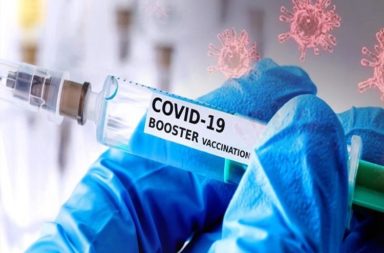Washington. Resilience and high quality of life are demonstrated by many individuals born with heart defects; however, they may face a range of health-related psychological and social challenges throughout their lives.
A new scientific statement reviews potential psychological and social challenges that occur from infancy through adulthood among people born with heart defects and the types of mental health care that may be beneficial. The statement advocates for mental health professionals to be integrated within interdisciplinary teams that provide medical care to children and adults with congenital heart defects, which is more common in cancer care than cardiac care.
Congenital heart defects (CHD) occur when people are born with structural abnormalities of the heart or blood vessels involving the heart. Surgery and catheter interventions are often required to address these issues. Most people with CHD survive through adulthood, with adults now outnumbering children among more than 2.4 million living with CHD in the United States. A surgical intervention, however, does not cure CHD. People may need multiple operations, and speciality heart care is required throughout their lives, especially if they were born with complex heart problems.
“Decades of research describes the psychological and social stressors and challenges that can present across the lifespan for people with CHD,” said Adrienne H. Kovacs, Ph.D., chair of the writing committee for the scientific statement and a clinical psychologist who specializes in working with people who have CHD. “It’s long overdue that we move beyond awareness to action and providing more resources and expert mental health care for people living with CHD.”
An American Heart Association scientific statement is an expert analysis of current research and may inform future guidelines. The Association’s 2011 scientific statement on a related topic addressed developmental delays and other neurodevelopmental outcomes in children with CHD. However, this is the first statement to summarize the psychological and social challenges from childhood through adulthood and to review age-appropriate mental health interventions to improve quality of life.
According to the new statement, children with more complex CHDs have a 5-times higher rate of receiving an anxiety diagnosis in their lifetime compared to children without CHD. Despite the evidence of emotional, social and behavioral difficulties, only a small fraction of children with CHD are offered or participate in mental health assessment or treatment. For adults with CHD, the rate of experiencing a mood or anxiety disorder in their lifetime is about 50%, compared to about 30% for adults in the general population.
The statement summarizes the psychosocial impact of CHD during various stages of life:
Infancy — Babies may be exposed to frightening or painful procedures, and they may be separated from caregivers and family for extended periods of time for surgery or other hospitalization. In response, infants with CHD may be hypersensitive to light and sound, have difficulty feeding and sleeping or display intense fear and distress, and they may have developmental delays.
Childhood — There may be additional hospitalizations and surgeries, therefore, less opportunity to play or attend school, and they may also have developmental delays. In response, children with CHD may become socially withdrawn, experience symptoms of anxiety or depression, have difficulty in school, or display aggression or hyperactivity.
Adolescence — Health concerns may arise at the same time teens are striving for independence, expanding their social networks and taking on more responsibility for managing their health care as they transition from pediatric to adult care. In response, adolescents with CHD may have social difficulties, become angry, defiant or frustrated, or have body image concerns. They may also display risky behaviors or not follow health recommendations.
Adulthood — There may be new or worsening heart symptoms, repeat surgeries or other cardiac interventions during adulthood, and CHD can have a negative impact on finances, employment, insurance and family planning options. In response, adults with CHD may have difficulty with interpersonal relationships, higher education or employment. They may also have trouble taking care of their health needs and become worried about death and dying.
“It’s completely understandable to have a psychological reaction to living with a congenital heart defect. The condition presents numerous challenges throughout the lifespan and may include unexpected news — such as a person realizing they can no longer physically manage the demands of their job, or learning that there are significant risks to pregnancy,” said Kovacs. “Many people with CHD have tremendous resilience in the face of these challenges. At the same time, we want to normalize psychological reactions and increase the prevalence of care for psychological well-being to help people with CHD experience a full and healthy life.”
According to the statement, approaches to mental health care may encompass self-care strategies, such as relaxation techniques and hospital-based or online support groups; psychotherapy such as talk therapies for individuals, couples, families or groups; and medication therapy where a medical team can determine appropriate, heart-safe medications for depression or anxiety.
The statement strongly advocates for the integration of mental health professionals within CHD specialty care teams. Integrated mental health care normalizes emotional reactions to health challenges, reduces stigma, improves timely access as soon as health challenges arise, and provides coordinated care across the multidisciplinary health care team.
“The goal of this statement is to foster psychologically informed care that empowers people with CHD and their families and provides emotional support,” said Kovacs. “We would like mental health assessment and support to be part of comprehensive care for all people with CHD rather than a special service that is offered only in some places or special circumstances.”





